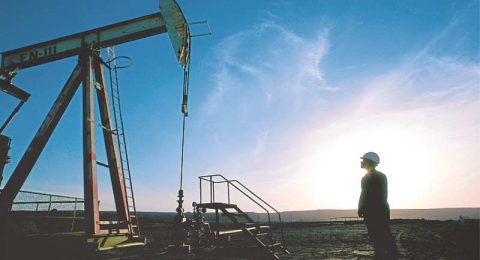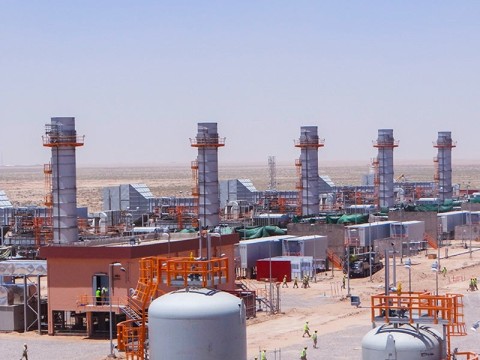Iran struck a combative tone Thursday in its confrontation with the West over the nuclear issue, threatening to terminate oil exports to European nations even before their embargo takes effect this summer. But its president also acknowledged that the regimen of punitive sanctions imposed on Iran, which he had long dismissed as insignificant, were hurting ordinary Iranians.
“It is a big lie that they are not targeting the people,” President Mahmoud Ahmadinejad said of the sanctions in a speech reported by Iran’s official Islamic Republic News Agency. Directing his ire at the Western powers that have imposed the sanctions, which have constricted Iran’s ability to sell oil and conduct international financial transactions, he said, “You are the real enemy of people and are putting pressure on them.”
Political analysts said Mr. Ahmadinejad’s acknowledgment of sanction pain, in an otherwise bellicose speech, was a departure from the government depiction of Iran as an immune fortress. They said it may reflect the harsh reality that the corrosive effect of sanctions on Iran’s currency, exports and employment could no longer be ignored by Iranian politicians facing their audience at home.
Just one day earlier, Mr. Ahmadinejad was forced to reverse himself and approve a sharp rise in bank deposit interest rates as part of an effort to stop a plunge in the value of Iran’s currency, the rial, which accelerated after the European Union announced the oil embargo on Monday. Many Iranians have been seeking to sell rials for gold and foreign currencies, fearful that their own money is becoming worthless.
“Iran’s official narrative has long been that sanctions have a negligible impact, and in fact have been helpful in making the country economically self-sufficient,” said Karim Sadjadpour, an Iran expert at the Carnegie Endowment for International Peace in Washington. “While it may be tough to suddenly pivot from that and say that sanctions are the cause of Iran’s economic malaise, it’s no longer possible to dismiss the impact of sanctions when everyone in Iran has been affected by the country’s ongoing currency crisis.”
The uranium enrichment program at the heart of the sanctions has become the most urgent point of contention between Iran and the West, which has long suspected that the Iranians are working to build a nuclear weapon despite their repeated denials. Iran has said it is enriching uranium for civilian energy and medical purposes. Israel, which considers Iran its most dangerous adversary, has hinted at the possibility of a pre-emptive military strike against Iran’s nuclear facilities.
In his speech, at an industrial project ceremony in southeast Iran, Mr. Ahmadinejad expressed his country’s willingness to re-engage with the Western powers in negotiations over its uranium enrichment program, as his foreign minister, Ali Akbar Salehi, had said last week.
But Mr. Ahmadinejad also accused them of insincerity in their own offers to resume the talks, which were suspended a year ago.
“I admonish you to pave the right track and do not make any excuses while the time is ripe for negotiations,” Mr. Ahmadinejad said. “Be friendly to Iranians because it is no longer a time of making noises and bullying others in the world.”
A more belligerent warning came from Iran’s Parliament, where lawmakers were working on a plan to stop Iran’s oil exports to Europe in retaliation for the embargo, which is to begin July 1.
“Europe will burn in the fire of Iran’s oil wells,” Nasser Soudani, a member of the Parliament’s energy committee, said in remarks carried by the Fars News Agency.
Under their plan, he said, “All European countries that made Iran the target of their sanctions will not be able to buy even one drop of oil from Iran.”
Mr. Soudani further predicted that the Europeans, who are heavily reliant on imported oil, would have no choice but to renounce the embargo because “abandoning Iran’s oil would mean the extinguishing of the candles of their economic lives.”
His remarks may have been intended to rattle the global oil market, where the price of crude has sometimes jumped in response to previous threats by Iran, the world’s fourth-largest oil exporter.
But crude prices, which have hovered around the $100-per-barrel range, were little changed on Thursday, partly reflecting what oil traders said was ample evidence that other producers — notably Saudi Arabia, Iraq and Libya — could compensate for any absence of Iranian oil.
Source: New York Times











